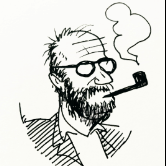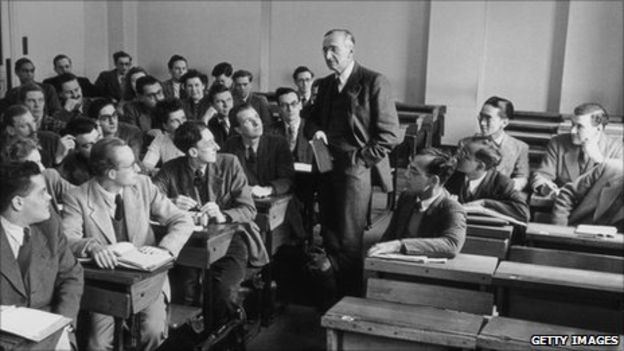-
Compteur de contenus
12 971 -
Inscription
-
Dernière visite
-
Jours gagnés
52
Tout ce qui a été posté par F. mas
-
Pourtant, l'avènement de l'ère atomique n'a pas abouti à la disparition des conflits. Au contraire, la guerre froide et ses conflits chauds, les guerres de décolonisation, le triomphe des conflits asymétriques, les centaines d'interventions militaires, y compris par par les puissances nucléaires, n'ont pas cessé. Je crois qu'il ne faut pas perdre de vue, et c'est ce que souligne Rincevent, c'est qu'à la base, la guerre, c'est la continuation de la politique par d'autres moyens : elle a des buts en soi, mais aussi des buts hors d'elle-même. Il s'agit de faire plier l'ennemi pour arriver à ses fins, et non pas nécessairement détruire radicalement l'ennemi (ou rendre toute paix impossible en se comportant au-delà des conventions de la guerre).
-
Et le patriarcat de Moscou, à l'image de son Cyrille, a toujours été un relais servile du KGB sous l'URSS et de la police d'Etat maintenant. Que Cyrille fasse du gringue à Poutine ou l'inverse, c'est une histoire de renvois d'ascenseurs entre anciens des services spéciaux.
-
Il n'y a pas que le Patriarcat de Moscou.
-
Ah Lindon. Je le croisais régulièrement, il habite place saint Sulpice.
-

Que feriez vous si vous n'aviez plus besoin de travailler pour gagner votre vie ?
F. mas a répondu à un sujet de POE dans La Taverne
Tiens, rien que pour emmerder Hayek'sP. Si j'avais de l'argent, je transformerais Pithiviers en un mélange de Silicon Valley et de Las Vegas. -

Que feriez vous si vous n'aviez plus besoin de travailler pour gagner votre vie ?
F. mas a répondu à un sujet de POE dans La Taverne
Et si on devait comparer ces villes à Niort ou Châlon en Champagne ? Rien que de prononcer ces noms, j'ai plein d'images houellebecquiennes d'hôtels formule 1 et de zone commerciale avec foirefouille et Buffalo Grill qui me viennent à l'esprit. -

Que feriez vous si vous n'aviez plus besoin de travailler pour gagner votre vie ?
F. mas a répondu à un sujet de POE dans La Taverne
Je dirais même le tonton du bled -

Que feriez vous si vous n'aviez plus besoin de travailler pour gagner votre vie ?
F. mas a répondu à un sujet de POE dans La Taverne
Ah si, je ferais du golf aussi. -

Que feriez vous si vous n'aviez plus besoin de travailler pour gagner votre vie ?
F. mas a répondu à un sujet de POE dans La Taverne
Je passerais ma vie entre Londres, New York et l'Italie (la Toscane, Rome) à courir les cours les formations, les expos et les concerts. -
@Rübezahl : le problème central posé par le dialogue en question est plus celui de l'application de la justice (et donc des conventions morales et juridiques) aux ennemis, en temps de guerre. Les Méliens voulaient rester neutres, mais ils ont eu la guerre quand même. Ils plaident leur cause auprès des vainqueurs pour éviter le ratiboisage (le massacre des hommes et la vente comme esclaves des femmes et des enfants) et on leur répond d'aller se faire cuire le cul : « la justice n'entre en ligne de compte dans le raisonnement des hommes que si les forces sont égales de part et d'autre ; dans le cas contraire, les forts exercent leur pouvoir et les faibles doivent leur céder ».
-
C'est une question assez ancienne en fait, qui ne remonte certes pas au néolithique mais le problème est déjà posé plus ou moins de manière canonique dans la guerre du Péloponnèse de Thucydide, dans un passage assez célèbre (et que tous le monde commente tout le temps) à savoir le siège de Melos par les Athéniens. Melos est une petite cité qui veut rester neutre, Alors qu'Athènes veut la rançonner et l'occuper. Face à la résistance des Méliens, les Athéniens ratiboisent la cité et expliquent pragmatiquement qu'on n'applique pas la justice aux minus. Les deux positions sont présentées dans un dialogue qui expose les deux argumentations.
-
@G7H+ Je ne dirais pas logique totalitaire mais logique criminelle. Sinon je pense que pour certains, la responsabilité collective fait sens. Si tu t'en prends à un des miens, j'ai le droit, pour ne pas dire le devoir, de m'en prendre à l'un des tiens. Quelque soit le contour de la communauté imaginaire à laquelle tu te rattaches et tu rattaches ton ennemi. @poney La question en droit de la guerre porte surtout sur les conventions morales et juridiques est passibles de condamnation. La distinction entre combattants et non combattants, c'est une des bases de ces conventions qui la réglemente (il y en a d'autres) en droit international. J'ai pris l'exemple des bombardements alliés car c'est celui que Michael Walzer reprend dans son livre sur la guerre juste, et pour tenter de déterminer si c'est un crime de guerre. Ce n'est bien entendu pas le seul exemple qu'on trouve dans l'histoire militaire. Ca répond aussi à @Zagor sur les justifications morales et idéologiques de telles décisions. Les bombardements d'après 40 étaient justifiées auprès des alliés sur une base utilitariste (coucou Liddell Hart). Cependant, c'est en soi un choix moral que de se dire 'on va tuer des civils pour faire pression sur les militaires et accélérer la fin de la guerre, et donc diminuer quantitativement le nombre de morts total" plutôt que "concentrons nous sur les cibles militaires". D'ailleurs, de mémoire Walzer remarque que ceux qui ont ordonné ces bombardements, contrairement à leurs collègues, n'ont pas été décoré à la fin de la guerre. Une façon de dire que si l'action était nécessaire, elle n'était pas vraiment glorieuse et digne d'être commémorée.
-
@G7H+ Sur l'un des détails : "Coulibaly (...) se met à tenir des propos sur la Syrie, sur l’armée française qui tue là-bas des enfants, sur les pays musulmans qui sont opprimés. Les otages disent qu’ils n’y sont pour rien, Coulibaly leur répond : « En payant vos impôts, vous financez l’armée française, vous êtes coupables." En d'autres termes, il n'existe pas de victimes innocentes (et pas de distinction entre combattants et non combattants), car la participation à la guerre ici est une différence de degré, pas de nature. C'est un peu le même argument qu'on trouve dans le droit de la guerre sur la participation des civils à l'effort de guerre, en particulier lors de la WWII : les civils (qui travaillent dans les usines à la victoire du reich)sont autant coupables que les soldats qui se trouvent sur le front de l'est. C'est aussi en partant de ce raisonnement que les alliés se sont mis à bombarder les civils (pour "accélérer la fin de la guerre en incitant les populations à se tourner contre leurs dirigeants) à partir de 1942.
-
Arf, comme je n'ai pas pu attendre, j'ai copié collé la version du forum; Dis-moi quelles fautes tu as repérer pour que j'aille plus vite. Et il est excellent ce billet.
-
Oui !
-
Entre l'antisémitisme 'pur et dur des nazis' et celui de ces wannabe fofana, je ne vois pas vraiment de distinction de nature. (pour couper court à toute discussion oiseuse: oui liberté d'expression à Frize Cornichone comme à Famine)
-
Il est gratiné le 'rapper'.
-

Ces phrases qui vous ont fait littéralement hérisser le poil 2
F. mas a répondu à un sujet de Mathieu_D dans La Taverne
Je tiens à préciser que quand je parle de déplacement sur la droite, je ne cherche pas à porter un jugement de valeur négatif ou positif, mais plutôt à porter un jugement de fait (#teamneutraliteaxiologique). Qu'on le déplore ou pas, c'est comme ça. -

Traductions pour Contrepoints, Wikiberal et autres
F. mas a répondu à un sujet de Nick de Cusa dans Action !
Ah yes ça serait parfait! -

Ces phrases qui vous ont fait littéralement hérisser le poil 2
F. mas a répondu à un sujet de Mathieu_D dans La Taverne
Sur les médias de la gogauche : Je les vois plutôt comme dans l'abbaye fortifiée du Prince Prospero dans le Masque de la mort rouge de Poe. Mais c'est mon côté gothique. Donc Libertarien de gauche et goth. Sur la droitisation : bien sûr le mouvement général d'opinion est plus nuancé, mais on voit quand même apparaître un déplacement vers la droite dans les comms depuis des années. C'est pareil sur tous les médias que je consulte (Libé, France Cul, Le Monde, etc.) -

Traductions pour Contrepoints, Wikiberal et autres
F. mas a répondu à un sujet de Nick de Cusa dans Action !
Un volontaire pour traduire cet article (vraiment intéressant) sur les biais cognitifs des réponses au covid ? https://fee.org/articles/the-cognitive-biases-behind-societys-response-to-covid-19/ -

Ces phrases qui vous ont fait littéralement hérisser le poil 2
F. mas a répondu à un sujet de Mathieu_D dans La Taverne
Sinon, ce n'est pas propre aux "lecteurs de CP", mais c'est toute la presse francophone qui est comme ça. Donc rien de nouveau sous le soleil, la 'droitisation' est un phénomène général, et les médias propro ressemblent de plus en plus à une citadelle assiégée par les lecteurs mécontents. -

Ces phrases qui vous ont fait littéralement hérisser le poil 2
F. mas a répondu à un sujet de Mathieu_D dans La Taverne
Je vous l'avais dit, libertarien de gauche. -
Toots Hibbert https://www.youtube.com/watch?v=otbtDNT6FA8





